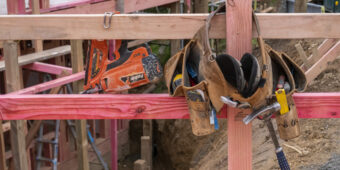Caution over ‘significant’ reform
25 Nov 2024, Industry News, News

The Government has announced it will investigate ‘significant’ reform of the building consent system in New Zealand to improve consistency, certainty, efficiency and make it easier for builders to get work done. However, much of the industry has reacted with caution
The Ministry of Building, Innovation and Employment (MBIE) is researching options, such as merging Building Consent Authorities (BCAs), increasing the role of private insurance in the consent sector and changing liability settings through self-certification.
Merging BCAs
One of the changes under consideration is to create a “more consistent and streamlined model” that reduces the number of BCAs and creates a single point of contact for consent applications, according to Building and Construction Minister Chris Penk.
“There are currently 67 BCAs across the country, each with different practices and approaches. We have a single Building Code that is supposed to apply consistently to all building work nationally. However, there are many instances of builders submitting the exact same plans to different BCAs and finding considerable additional costs and delays resulting from differing interpretations of the Building Code.”
Too early to tell for BCAs
Under Construction received feedback from three councils that it was too early to tell what the practical implications of the proposed change would be.
“Council building consents are cost recoverable and therefore the fees recovered cover Council’s costs for this activity,” said Christchurch City Council (CCC) Head of Building Consenting, Steffan Thomas.
“While it’s too early to tell, depending on the option that government decides, there may be a change in revenues.”
However, Thomas added that CCC did not anticipate increasing rates because of the proposed reform.
Hutt City Council (HCC) Head of Building Control, Richard Barton, said it was too early to understand the full impact of a BCA merge, but added that HCC ratepayers cover some of the cost of building consent services, so being relieved of it entirely could reduce the financial burden on ratepayers.
“HCC does not make a profit from running its BCA. We have internal targets to try and achieve 80% cost recovery to reduce the burden on general ratepayers. HCC ratepayers could be better off from the reforms; however, there is currently insufficient detail to assess the impact.”
Auckland Council GM Building Consents Ian McCormick said he wanted any review to “incorporate options around reducing ratepayer liability for building defects” and that the proposals had the potential to impact the Council’s service delivery.
“Auckland Council operates a cost recovery model for the delivery of building consent services. At this stage, we do not anticipate having to increase charges for existing services. However, some of the government’s proposed options have the potential to change existing services, which may mean some of the remaining services may take longer.
”Almost all BCAs have formal arrangements to share resources, policies and practices with other BCAs in their region. We believe any review of BCA organisation needs to incorporate options around reducing ratepayer liability for building defects.”
More enthusiasm from industry
According to Master Builders, 80% of members deal with multiple BCAs with 66% reporting delays in the consent process. The organisation believes Penk’s reforms will benefit its members.
“Our members have highlighted the challenges of working across multiple BCAs, each with its own processes and interpretations of regulatory standards. This not only delays projects but also increases costs,” said Master Builders Chief Executive Ankit Sharma.
“A nationally aligned consenting system will go a long way to addressing these inefficiencies and providing greater certainty to the building industry.”
New Zealand Certified Builders Chief Executive Malcolm Fleming provided cautious support, referencing a lack of detail, but said that, given the lower level of consents coming through, it was the right time to be looking at options.
Liability low-down
Additionally, the Government is looking at “liability settings” across the whole building system to “encourage less risk-averse decision-making from BCAs”.
“Under the current settings, councils and their ratepayers are liable for defective work,” said Penk. “Joint and several liability means councils can be ‘the last person standing’ available to foot the bill when things go wrong. This creates a highly conservative and risk-averse approach, which contributes cost and draws out deadlines.
“A model where building practitioners shoulder more of the risk should incentivise better quality work and lower the liability risk for ratepayers.”
The model being proposed by the Government is a self-certification scheme, outlined below.
Ben Rickard, director of construction-focused risk adviser and insurance broking firm Builtin, said that a review of liability is a good thing – but shifting the burden of risk from BCAs to builders will inevitably require builders to obtain insurance to cover that risk.
“The Government has also committed… to look at the feasibility of allowing builders to opt out of a building consent, or presumably some inspection requirements, if they have adequate insurance,” said Ben to Under Construction.
“The assumption is that by ‘lifting the competence’ of building professionals, insurance companies will be prepared to enter this market. While this is certainly possible, I think it is a stretch to say that it will materially improve efficiency and reduce cost. It’s almost certain that insurers will want inspections to be undertaken as a condition of underwriting any risk. So, just because a BCA is not doing the inspection, doesn’t mean inspections don’t need to be done, and someone has to pay for that.”
Rickard also said that before insurance scheme can adequately replace some inspection requirements, there would need to be wholesale reform of the consenting system.
“In my opinion, the Government must get their own house in order first by improving the efficiency of the consenting and inspection regime before imposing more requirements and penalties on builders. Having a well-run national consenting and inspecting organisation is more likely to attract insurers into the market to provide long-tail liability coverage for building defects.”
Industry insurers unbothered
Members of Master Builders are “backed by a building guarantee” of 10 years through the association, said Sharma, which will help enable the self-certification scheme.
“We are strong advocates for a system, where reliable, trusted builders are rewarded for their professionalism. We also believe self-certification will create an environment where others will elevate their standards,” said Sharma.
“The consenting process is critical to ensuring quality homes. This approach is not for every home; rather, it is for low-risk houses built by reputable, accredited builders, and backed by a building guarantee. Today’s announcement is a sensible improvement to a process that is overly cumbersome at the lower-risk end of the scale.”
Self-certification in concept
Despite caution from the insurance sector, the Government is progressing work on developing the new opt-in self-certification scheme for low-risk residential building work done by qualified building professionals and accredited building companies.
The new scheme would remove or reduce the third-party review role of BCAs for qualified building professionals and accredited building companies carrying out low-risk residential building work. This would be done by:
• Enabling a broad range of groups to be eligible to apply for participation in self-certification, including individual practitioners and accredited companies such as volume builders.
• Requiring that participants in the scheme demonstrate an appropriate, specified level of competency and experience and be trustworthy.
• Limiting the type of work that can be self-certified to lower risk activities, for example work on a simple residential dwelling.
“Qualified building professionals, such as plumbers, drainlayers and builders, will be able to self-certify their own work, for low-risk builds, without the need for an inspection,” said Penk.
“Businesses with a proven track-record – for example, group homebuilders who build hundreds of near-identical homes a year – will be able to go through a more streamlined consent process.”
Penk said the proposal includes additional safeguards, including a clear pathway to remedy poor work, strengthened qualification requirements for builders, and strict disciplinary actions for careless or incompetent self-certifiers.
Self-certification concerns
Auckland Council Building Inspection Manager Jeff Farhrensohn has used his LinkedIn profile to raise concerns regarding self-certification.
“Over the last year, 23,397 residential final inspections were carried out in Auckland with 37% of them failing the inspection. That’s 8,721 failed final inspections!
“Some required multiple re-inspections. Some require major deconstruction and remediation work… our building surveyors go to work believing the work they do provides homeowners and future homeowners with compliant buildings to live in.”
Nearly a third of homes not up to scratch
Fahrensohn added that out of 4,348 pre-cladding inspections carried out in Auckland over the past 12 months, 30% failed. According to the Building Act, Restricted Building Work, such as installation of flashing and a building wrap, must be carried out by a Licenced Building Practitioner (LBP). Other types of inspections include framing inspections.
“Building inspectors should be able to rely on LBPs installing frames straight, level and plumb (straight up and down),” he added. “Luckily, most do, hence we use random sampling to check framing tolerances. If we checked every part of the framing with our levels and straight edges, our inspections would take twice as long.
“Over the last year, 5,913 framing inspections failed from the 18,312 carried out. That’s a 32% fail rate.”
Detailed policy decisions will be announced in 2025 following a consultation, said Penk. The date of the consultation is yet to be announced.
Register to earn LBP Points Sign in



